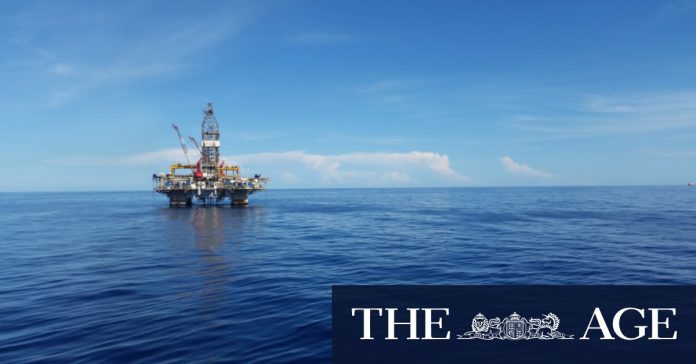[ad_1]
SK E&S, KEXIM and Santos were contacted for comment but did not respond.
Loading
The energy giant ploughed ahead with laying the pipe following the decision in January after spending $US10 million ($15.7 million) a month to hire a drilling rig idled by an earlier junction.
In an update to investors in February, Santos chief executive Kevin Gallagher reported the Barossa gas project was now 67 per cent complete and that the first gas was expected in the third quarter of 2025.
Market Forces senior gas campaigner Rachel Deans said the big four Australian banks “must listen to these warning bells and cut ties with Santos” following BNP Paribas and KEXIM’s latest decision. NAB, Westpac and ANZ declined to comment.
In a statement, the Commonwealth Bank said it was committed to supporting Australia’s transition to net-zero by 2050.
”Our environmental and social framework and our underlying environmental and social policy set out our approach, and we use our sector-level financed emissions targets to steer our portfolio in these sectors over time,” a CBA spokesman said.
“Decisions on whether we provide financing to a client are based on a range of factors, including credit and other group policy requirements, such as the E&S framework.“
Australia is the largest exporter of gas, and the Albanese government has embraced the commodity as a critical one as the country transitions to net-zero.
Resources Minister Madeleine King last month released the federal government’s future gas strategy, which identifies LNG as a critical part of the energy landscape beyond 2050, and pledges to deliver affordable gas to customers for decades to come. “New sources of gas supply are needed to meet demand during the economy-wide transition,” the strategy said.
In a report published earlier this month examining the future of the Australian gas sector, the Institute for Energy Economics and Financial Analysis questioned the commercial viability of local gas producers competing against lower-cost producing countries, such as Qatar, in a global market. It also found global LNG markets were heading towards a supply glut due to unprecedented increases in supply from low-cost producers and weak demand growth.
The institute’s lead gas analyst, Joshua Runciman, said BNP Paribas’ decision to not support the Barossa gas project followed its recent withdrawal from the proposed Papua LNG project.
“Looking at the numbers, Santos’ Barossa project faces the risk of poor financial returns,” Runciman said. “The costs of the Barossa project have already escalated and Santos will face additional costs to offset the very high CO2 content of the Barossa field.”
The Business Briefing newsletter delivers major stories, exclusive coverage and expert opinion. Sign up to get it every weekday morning.
[ad_2]
Source link



